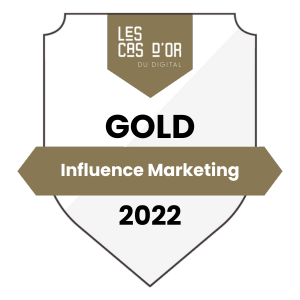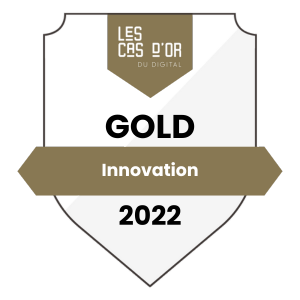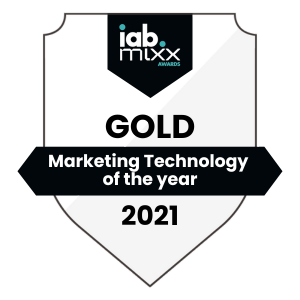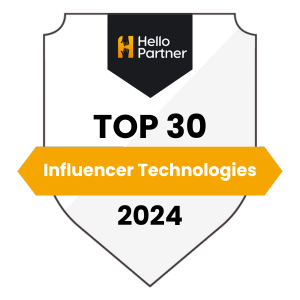Influencer marketing is on the rise, it is becoming an essential communication tool in all sectors to increase brand awareness and boost sales (often more effectively than traditional marketing approaches). However, for an influencer campaign to be effective, it’s important to develop the right strategy. Here are the top tips for successfully applying influencer marketing to your brand or product.
Before you begin to research and select relevant influencers for your campaign, the first step is to develop a solid strategy. This will determine the rest of the process. The following questions can help:
As with any other form of marketing, success is only possible if you’re clear about the goal you’re trying to achieve. Do you want to generate more interaction with your target audience, increase your visibility on social media, promote or sell a product? Only by setting clear objectives beforehand can you later assess whether or not the campaign has been successful.
Your target audience is a group of people you’ve identified who might be interested in your products or services. These are your ideal customers, or the people most receptive to your communications. Target audiences are often represented by personas. The criteria are profile, interests, deep-seated motivations…
When developing the strategy, it’s also important to think about the most important key messages and the story you want to deliver to the public.
Depending on your target audience and the objectives of your brand or products, you need to select the right channels to spread your message. Each platform offers different advantages and communication possibilities (video, click-through, etc.).
It’s important to set a budget in advance. This should include not only the influencer’s fees, but also other campaign costs, such as the cost of promoting the content. The rates charged in the influencer sector are heterogeneous, and methods of remuneration vary: fixed or variable fees, commission-based, in-kind compensation (free services or products on your part). This is also something to bear in mind. In general, there’s still a lot of uncertainty as to the exact cost of a message, but an influencer tool like Stellar Tech will give you an expected cost you can work with.
You have several possible options, but not all of them are equally accurate or efficient.
For example, manually searching through your own social networks is the most obvious option, but this method is time-consuming and often uninformative. You don’t have access to publication statistics, so you have no idea how a particular influencer is performing.
To facilitate and automate your search for influencers, you can automate the search and selection stage using our Stellar Tech platform. This gives you access to over 20 million influencers worldwide. Search filters (socio-demographic, previous collaborations, social media, number of followers…) enable you to refine your search and find relevant influencers in just one click.
Using an influencer marketing tool is therefore more efficient, productive as you gain insights into hard-to-get data such as engagement rates, growth trends… which are difficult to obtain manually but crucial to finding the right match for your brand.
The evaluation of an influencer is marked by qualitative and quantitative criteria, to confirm the relevance of the influencer, the quality of his/her audience and real performances.
As a brand, you have asked yourself about your strategy and the objectives you wish to reach. At this stage of selecting your content creators, you will rely on 3 essential questions: what is your brand identity, what are your values and what is your personality? Your reflections on these 3 questions will then allow you to verify if the influencer is in adequacy with your answers.
To analyze an influencer and estimate his/her relevance to a brand’s products or services and campaign’s objectives, you can dive into the data concerning his/her profile, with :
It is essential to check the coherence between the influencer, and more particularly his/her personality and editorial line, and your brand or organization. To do so, you will focus on the topics and interests addressed by the influencer in his/her content, as well as on the tone and style he/she uses. This step aims at validating the adequacy between the influencer, your DNA and your brand values.
It’s just as important to qualify an influencer by the data concerning him or her as by those qualifying his or her audience. Indeed, it is imperative that the influencer’s audience matches your brand and your target audience. First of all, to evaluate the audience, you can focus on socio-demographic data such as age, gender, but also location. And then, you can analyze the audience of your content creator based on the interests of his audience.In influencer marketing, the most important thing is not to find the one with the biggest community but the one whose subscribers are sensitive to your products and values.
To evaluate the quality of an influencer, you have to analyze the credibility of his/her audience and make sure that it is authentic and not “fake”, i.e. that this influencer is not followed by too many fake subscribers simulated by robots. Stellar solution gives you a directly accessible indicator named “Audience Credibility Score”. This score qualifies an influencer according to the authenticity of his/her audience. This rating is a guarantee of quality.
And finally, it is important to look carefully at the mentions and identifications of commercial partnerships that the creator has made with other brands. Some past partnerships may represent a risk for your campaign : for example if the influencer has worked recently with your direct competitors or with companies with a bad reputation.
To sum up, the selection of an influencer and the success of a campaign also depends on the consistency of his/her audience. You can qualify an audience based on criteria such as :
To choose the most appropriate influencer, several KPIs can be used to qualify the profile, the content but also the audience. We reveal the list of KPIs to analyse during your selection stage, but also during the estimation and measurement stages of the real performance of a collaboration with influencers.
To qualify the influence of a content creator, the reach KPIs are the most relevant to analyze:
Engagement is the set of reactions obtained by a publication on social media. We measure the following indicators:
When you dive into the statistics, it is important to look at the influencer’s performance on all social networks. An influencer is not active in the same way on all his accounts, just as he does not get the same results. A video will not have the same results on TikTok or on Instagram.
The KPIs allow you to measure the actual performance of a content creator’s posts. You can also use these indicators to estimate your projected performance and the success of your campaign. You can easily get your projections on our Stellar tool which makes predictions based on the influencer’s past results and means. Stellar calculates and estimates for you the costs but also the performance metrics such as reach, engagement, impressions, views of your campaign, accompanied by data on profitability with the EMV, ROI and efficiency metrics (CPM, CPC, CPV and CPS). It is a real crystal ball in your hands to anticipate the success of your future collaborations.





